Living and Learning: Healthy Eating
We have been looking at healthy eating in our Living and Learning lessons. This week, we have focussed on what a poor diet looks like and the consequences of this lifestyle.
The children first of all had to think about what might a unhealthy diet look like.




We then discussed what consequences there might be due to these poor diets. Help at home: Can you match the health risks to the meal plans?

The children finished off the lesson by creating a healthy meal plan, using their knowledge of the Eatwell Guide.
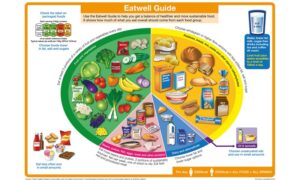
Maths: Line Graphs
This week in Maths, we have moved on from perimeter and area and are now looking at statistics. Last lesson, we drew line graphs. Lots of children find this very hard but we broke it down into 4 easy steps to remember.
- Draw and label the horizontal axis. (Remember the horizon is a horizontal line!)
- Draw and label the vertical axis. (Think about the intervals!)
- Plot the points.
- Draw a line to join the points USING A RULER!
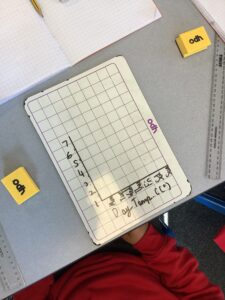
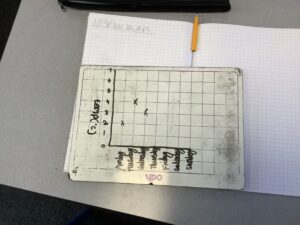
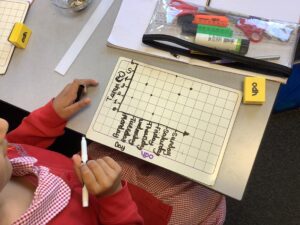
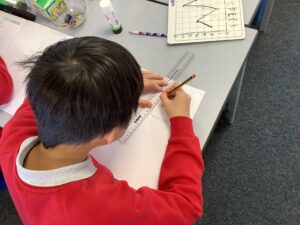
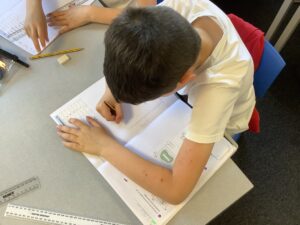
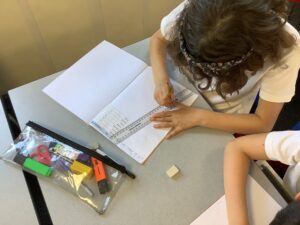
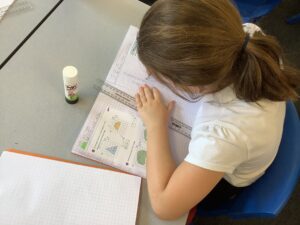
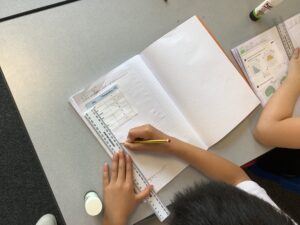
Help at home: Draw a line graph and plot these points.
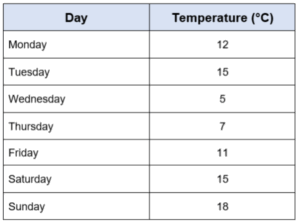
Reading: Class Novel
This term our class novel is ‘Letters from the Lighthouse’ by Emma Carroll.
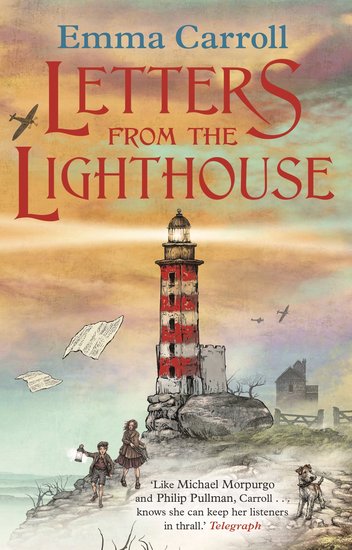

This book is about Olive and her brother, Cliff, and her sister, Sukie, who goes missing in an air raid bombing. Olive and Cliff are sent away as evacuees to live on the Devonshire coast to keep them safe. Olive must try to solve the mystery of her missing sister using a coded note she found.
We have really enjoyed this book so far and have loved being sat outside whilst we read!
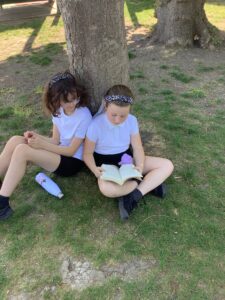
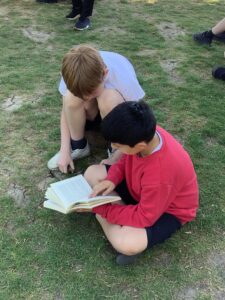
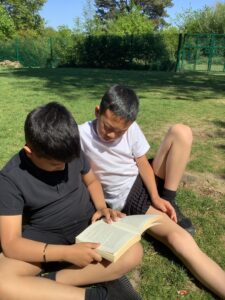
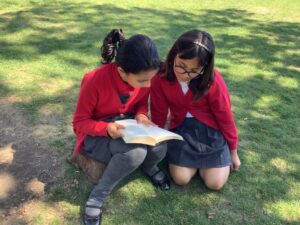
Help at home: Have a discussion about with your child about what they like/dislike about the book so far. Can they summarise the text? What impression do they get of Olive/Cliff/Sukie?
Latin: Roman Numerals
In each of our Latin lessons, we have a section called ‘Living Latin’. In this part of the session, we look at how Latin has impacted our lives today (for example, the derivatives of words).
Take a look at some of the way it has affected us:



Help at home: Take a look at the slides above, can you think of any other words that derive from ‘port’ or ‘form’?
The children have LOVED when we learnt about Roman numerals. Whilst they know each of these numbers would not be commonly represented like this, they have really enjoy trying to create different ways to make the numbers.


Help at home: Can you represent the numbers 301, 482, 792, and 148 in Roman numerals?
Living and Learning: Health and Prevention
In Year 5, we have been focusing on vaccinations. We learnt how different vaccinations impact/prevent different diseases and illnesses. The children read about Edward Jenner. He was an English doctor who created the first vaccine in 1796. Did you know Jenner’s discovery came to be known as vaccination from the Latin word for a cow: vacca?
Take a look at his story:

Summer term after-school clubs
We are historians!
This half-term, we are historians. We will be learning about WWII.
This week we have looked into the ‘Blitz’ – from the German term Blitzkrieg (‘lightning war’) . It was the sustained campaign of aerial bombing attacks on British towns and cities carried out by the Luftwaffe (German Air Force) from September 1940 until May 1941.



We have been exploring how Leeds was impacted by The Blitz on the 14th-15th March 1941. We used secondary research from Leeds Becket University.
We found out that most of the bombs landed in the city centre and the closest event occurring nearest to Moortown was a fire in Meanwood.
Here are some of the events, the children found interesting:



Help at home: Explore the interactive map and find out more information about how Leeds was impacted by The Blitz.
Year 5/6 netball event
As part of our involvement with the Leeds Well Schools Partnership, we took a team of 8 Year 5/6 children to a Bee Netball Development Event at Allerton High.
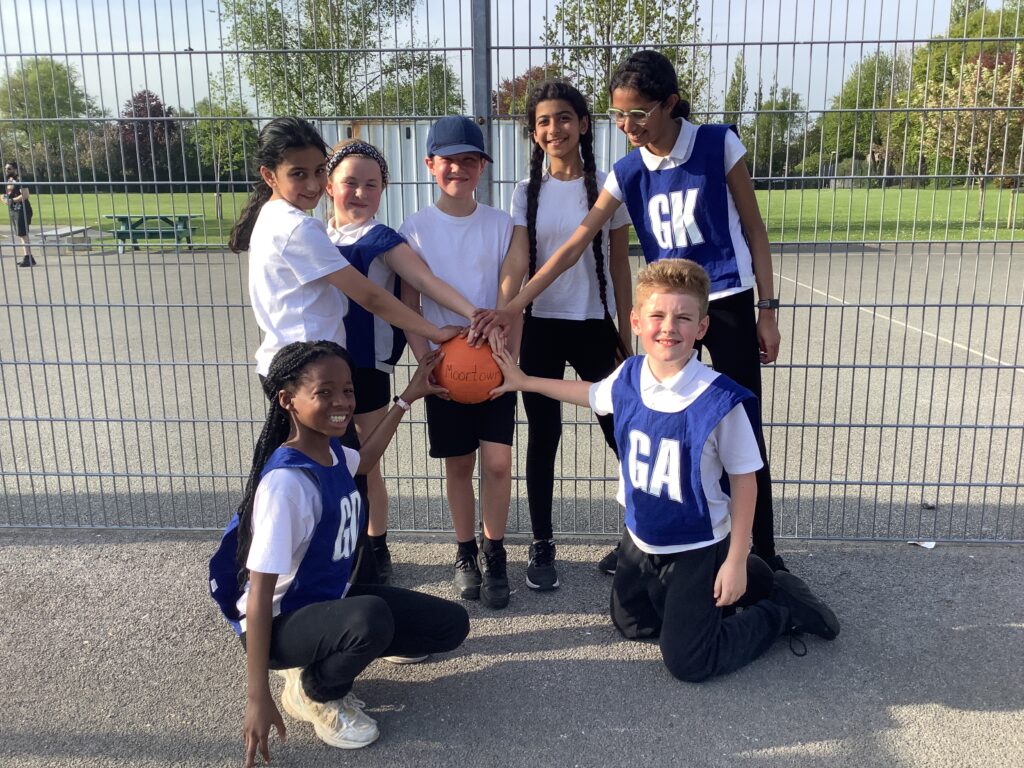
The event was aimed at developing netball skills and the children put them into practise in some games at the end. Well done to all the children for representing our school so well.
To take part in netball outside of school, here are details of a local club.

A reply from Miss Needham!
Miss Needham LOVED hearing all about what Year 5 had been getting up to recently and was very emotional about it. (We made her cry – in a good way!)
Take a look at her response to our postcards:


We are chemists!
This week, we have started our next unit in science: reversible and irreversible changes. For this topic we are going to be chemists. Chemistry is the study of the properties of substances and the changes they go through.
In today’s lesson, we tested which substances could be dissolved in water. If our substance did dissolve this meant that it was soluble and created a solution. If it did not dissolve, then the substance was insoluble.
Our scientific enquiry type was ‘comparative and fair testing’.









Help at home: Discuss our new science vocabulary.
